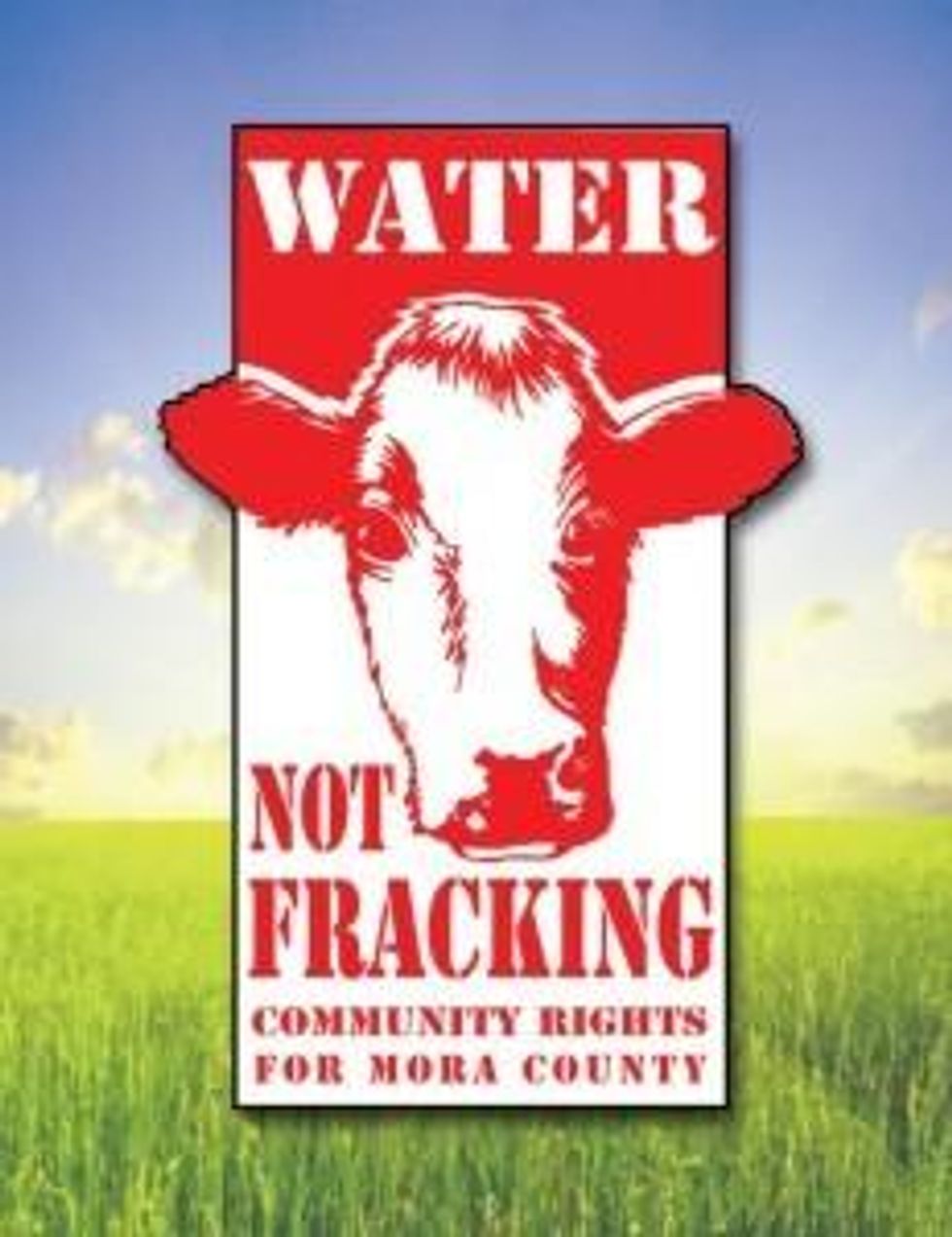We are well into summer 2013, and in the West temperatures are high, wildfires are raging, and droughts are in effect in many states.
One state that has been hit particularly hard is New Mexico. Nearly 90 percent of the state is experiencing extreme to exceptional drought conditions, and the Rio Grande is now often referred to as the "Rio Sand." This is why a recent headline in the Albuquerque Journal titled "NM Farmers Selling Water to Oil and Gas Developers" makes absolutely no sense. In fact, it reflects the sheer folly and arrogance of humankind.
The paper reported that some farmers in New Mexico, who have been impacted by the drought, have been selling water to the oil and gas industry for fracking (hydraulic fracturing refers to the process by which fluid is injected into wells under high pressure to create cracks and fissures in rock formations that improve the production of these wells). Some are even pumping precious water from aquifers to sell to frackers.
A New Mexican water official said "The oil and gas industry is requiring a lot of water and our concern is the effect it's having on our aquifer," he added. "We are concerned about losing water that can't be recovered. Hopefully, we will get through this drought and everyone will be intact."
On top of the insanity of desperate farmers selling water for fracking is the number of people still moving to arid places, and the impact on the environment. A recent article in the Los Angeles Times - "New Mexico is the Driest of the Dry" - noted that "As Western cities continue their march into wildlands, the growing desert and the sprawling suburbs are on a collision course." At least in New Mexico the population is barely growing, but there is the ever constant push for more and more unsustainable development.
Facts on Fracking and Water
The Pacific Institute, a nonprofit research and policy organization, reported in its 2012 study Hydraulic Fracturing and Water Resources: Separating the Frack from the Fiction that "The United States Environmental Protection Agency (U.S. EPA) reports that fracturing shale gas wells requires between 2.3 million and 3.8 million gallons of water per well. An additional 40,000 - 1,000,000 gallons is required to drill the well." The authors also found that "New data, however, suggest that the water requirements for fracking shale gas wells might be both much larger and more variable than is reported by the U.S. EPA."
Lastly, the Pacific Institute study also noted that "Water for hydraulic fracturing is typically withdrawn from one location or watershed over several days. Additionally, in some cases, the water is taken from "remote, often environmentally sensitive headwater areas", where even small withdrawals can have a significant impact on the flow regime."
Business as Usual or a Move to Clean Energy?
The farmers mustn't be faulted for trying to survive in a tough business and climate conditions. Those who can and should be faulted are those pushing business as usual. The evidence that society must get off fossil fuels is too great to be ignored. The oil and gas industry are certainly guilty, as are their lobbyists and political supporters, and of course, climate change deniers.
But consumers who continue to ignore the call to invest in clean energy play a huge role too. When enough people demand sustainable energy options and are willing to pay the price for dirty fuel (such as a carbon or gas tax), more decision-makers will listen.
The fracking companies will take what they want and leave. Business as usual is too high of a price to pay. We won't get off natural gas and other fossil fuels until we prioritize and invest in clean energy. Additionally, arid regions will need to stabilize population growth and end sprawl.
Joe Romm of Climate Progress stated it well when he wrote "You'd think state officials would see the value for farmers and residents in sustainable consumption given where the climate is headed." This applies to communities not just in New Mexico, but everywhere.




